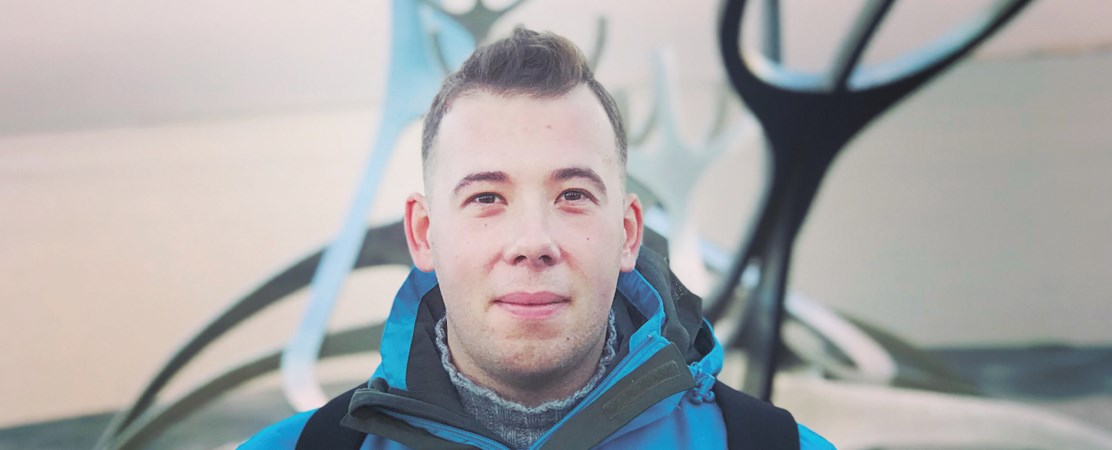My Northern Project

By Kirill Gurvich, PhD Candidate, Nord University
As Nelson Mandela said, “Education is the most powerful weapon which you can use to change the world.” I totally agree with this thought. My life has been going side-by-side with the education sector for over eight years now, and by working in education, I try to change the world every day.
I was born in Arkhangelsk, the “gateway to the Russian Arctic”, where I also got my sociological education at the Northern (Arctic) Federal University. A Bachelor in Sociology gave me a brilliant base to see a little more even in minor events, and to be ahead in understanding, explaining and anticipating what is happening in the society. Together with my Arctic background (where I have been living most of my life), my aspiration to bring practical benefits to the society and use all the knowledge gained in real life formed the picture of my professional identity: I decided to become a professional sociologist specializing in the development of the Arctic region. For most people outside of it, the Arctic is a remote, sparsely populated region with harsh climate conditions. For me, it is a home and an inexhaustible source of inspiration.
One of the key roles on the path to my professional development belongs to UArctic. Within eight years I have been studying the culture, history, challenges and issues of the circumpolar region. UArctic and the Bachelor of Circumpolar Studies (BCS) program gave me a great opportunity to expand my knowledge, professional experience and range of interests. It also enabled me to become a student at the University of Northern British Columbia in Canada, and UiT The Arctic University of Norway and Nord University in Norway. The latter ended up being where I started my academic career as a PhD fellow.
Getting a PhD is a big commitment: it's three years of hard work on a research project placing high demands on time and dedication. It requires hours of office work – reading, editing, developing. In my eyes, a PhD career is an opportunity to get paid for something that makes life meaningful. Why? From the very beginning of my career as a researcher, I have been very interested in the migration processes in the Arctic. For instance, due to wars and armed conflicts in Syria, since 2011 over eleven million people left their homes to seek protection and security. This dramatic migration process got the title “global refugee crisis” due to the difficulty of meeting the refugees' needs by the receiving countries. The circumpolar region became one of the most significant places of their resettlement. The term “refugee crisis” sounds quite negative due to the mass media's representation of this issue. When we hear the word “refugee”, we suddenly start to think about problems and challenges, rather than positive processes. However, refugees are just people who lost their secure homes and need a new place to live. Today, they are a part of the circumpolar community, but this topic has not received proper academic attention in recent years.
Observing the migration of refugees to the Arctic, I always wanted to know what difficulties they faced and how I could help them. Subsequently, my personal interest became the topic of my PhD project: I am studying the refugees' integration in the circumpolar region, comparing northern Norway and northern Canada. I study the features of the sociocultural adaptation of refugees through the prism of social work practices on micro- and macro-levels. In addition, I explore their sociocultural adaptation from a comparative perspective, using Norway and Canada as examples with a high level of migrants or refugees and completely different social work practices defined by distinct social policies. On a practical level, and what makes this important, the results will help in determining the strengths and weakness in existing social work practices with refugees. Also, the results can be useful in creating state programs devoted to the adaptation of refugees in different countries in the circumpolar region. For me, this project is not only an effort to do research that no one has ever done before and to contribute to the sum of human knowledge, but also applying my knowledge and skills to solve this problem and draw public attention to it.
Being a researcher means that you take responsibility, not only for yourself or the university where you work, but also for the people with whom you are working to obtain the data for analysis, and also for the people who will read your articles and reports. The researcher is a link between the social problem and the general public represented by the state, academia and ordinary people. A researcher presents the problem to the general public in order for it to be solved.
Being a researcher entails constant professional and personal development, because it is impossible to be a good specialist without reading the work of colleagues, without mastering new programs and methods, and without trying to analyze the contemporary processes taking place in the society. My Northern Project, the competition that is part of the Arctic Circle Assembly, is a place where research papers meet reality, and where the academia, industry, mass media and general public meet. It is a unique platform for interaction where you can present a problem in front of almost all sectors of society and get support. When I presented my project in Reykjavík in autumn 2018, I got the opportunity to hear opinions and perspectives from fellow PhD students from Europe and Canada. Moreover, I had a chance to meet representatives of governments and media from all over the Arctic. Therefore, it is not just a platform for the presentation of research projects and results, but a possibility to jointly solve the global issues and challenges of the Arctic, and to make an impact and make changes in the Circumpolar North.
